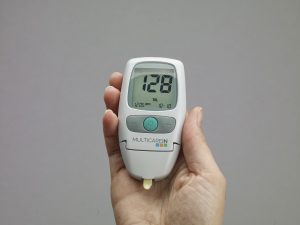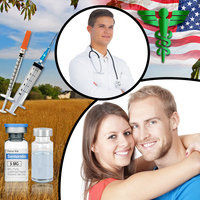 The hormones in your body are part of a delicately coordinated system that has evolved in symbiosis with the environment and with all of our body’s internal systems over millions of years.
The hormones in your body are part of a delicately coordinated system that has evolved in symbiosis with the environment and with all of our body’s internal systems over millions of years.
Each system, and each part of the system, is coordinated with and depends on the rest. Our hormones send chemical messages to our organs, tissues, and skeletal system to keep us healthy and functioning correctly for our current environment and age.
We spent most – almost all – of our evolution in an environment where we never, or rarely, consumed alcohol. So alcohol is, in evolutionary terms, something very new. And it is also something we have not co-evolved with. And it can and does interfere with our hormonal or endocrine system.
Our Hormones Make Up a Communication System
Our hormones send molecular signals – a kind of messenger, or communications, system – to orchestrate and control the many functions of our body’s tissues and organs.
When that “communications system” works correctly, the exact timing and exact amount of each hormone are in perfect proportion so that our tissues and organs do what they are supposed to do at the right time and to the right degree.
If that does not happen, our bodily systems won’t “know” what to do and may often do the wrong thing – to the detriment of our health.
Drinking alcohol, even below the level at which you might feel a “buzz,” can disturb the functioning of the glands that release hormones into the bloodstream. It can also affect how our organs and tissues respond to the hormones they are sent. Either of both of these things can negatively impact our health, and can even disrupt essential life-sustaining functions of our body.
 The Effects of Alcohol on Hormone Production
The Effects of Alcohol on Hormone Production
Here are a few of the things related to hormone production and response that can be affected by drinking alcohol: 1) reproduction and sexual function; 2) storage, use of, and production of the basic energy that the body needs for all its purposes; 3) maintenance of normal blood pressure; 4) regulation of correct bone mass and structure; 5) all-important growth and development of our bodies (and, if you're a mother-to-be, of the child in the womb); and 6) (perhaps the most ominous) triggering of addictive "alcohol-seeking" behavior, an unnatural behavior pattern stimulated by alcohol-induced changes to the hypothalamic pituitary adrenal axis.
Alcohol can directly interfere with the hormones that affect our normal hunger response, negatively impact digestion of our food and drink, increase the risk of bone fractures through osteoporosis and impaired calcium metabolism, which affects the bone structure and strength, and can cause improper blood sugar levels.
Alcohol Consumption and Glucose Utilization by the Body
Every single part of our body depends on glucose (sugar) for its functioning – that’s one of the main functions of the bloodstream: to take that glucose to where it’s needed and keep all those cells in all our organs and tissues doing the many jobs they need to do.
We get our glucose from what we eat directly, or by chemical transformation of foods by digestion for those foods that don’t contain glucose, and also by breaking down a compound called glycogen in our liver.
 And – you guessed it – the blood sugar level is controlled by hormones, specifically insulin, and glucagon, both of which are secreted in our pancreas. Insulin makes our blood sugar lower; glucagon makes our blood sugar higher.
And – you guessed it – the blood sugar level is controlled by hormones, specifically insulin, and glucagon, both of which are secreted in our pancreas. Insulin makes our blood sugar lower; glucagon makes our blood sugar higher.
The pancreas sends out ever-varying amounts of these hormones to regulate our blood sugar levels so it stays reasonably constant and in a healthy range.
The adrenal glands and pituitary glands also send out secondary signals to improve the regulation process. If blood sugar falls too low, for example, we can pass out, faint, or even sustain brain damage – among other things.
Blood sugar that is too high can also cause serious health problems and bodily damage. So the proper operation of that complex hormone-based regulation system is very important.
Alcohol interferes with the hormones that regulate glucose levels, and it also interferes with all three types of glucose production. Here are some of the ways, especially with heavy or habitual, regular drinking, it can cause these effects. It can:
1) make insulin secretion spike, triggering a temporary but possibly severe low blood sugar problem; 2) increase long-term glucose levels, even to the point of causing glucose intolerance; 3) temporarily inhibit glucose production while the alcohol is being metabolized; 4) disrupt the normal hormonal response to hypoglycemia; 5) disrupt glucose (and other nutrient) intake by lessening eating while alcohol (which contains empty calories) is consumed instead; 6) increase secretion of glucagon and other glucose-increasing hormones; 7) change the effects of diabetic medications; 8) lower the survival rates of diabetic patients.
 Our Bodies Were Not Designed to Handle Alcohol Consumption Adequately
Our Bodies Were Not Designed to Handle Alcohol Consumption Adequately
Yes, some of those effects seem to contradict one another – but they do so irregularly, and in a way, our bodies aren’t designed to handle them.
The result is blood sugar that spikes too high, then falls too low, and doesn’t appropriately respond to the hormonal signals trying to get things back into balance. Bad news!
There are many other effects alcohol has on other vital hormones, too – none of them good. Stay tuned for that information in our next article in this series.
Remember this basic tenet of health and longevity: what you don't do is more important than what you do. When applying that to alcohol, the rule is simple: enjoy alcohol in moderation if you don't have an underlying condition that would be severely affected by alcohol consumption.
Contact Us For A Fast And Professional Response

- Testosterone Therapy and the Heart. Is It Worth the Risk? [Last Updated On: May 23rd, 2025] [Originally Added On: March 5th, 2021]
- 13 Natural Ways to Increase Longevity and Quality of Life [Last Updated On: January 14th, 2025] [Originally Added On: April 26th, 2021]
- Perimenopause is a Real Thing – and Women are Trying to Bring More Attention to It [Last Updated On: October 10th, 2025] [Originally Added On: May 18th, 2021]
- How to Limit Your Exposure to Phthalates [Last Updated On: April 4th, 2025] [Originally Added On: May 21st, 2021]
- Hormone Imbalance a Major Factor in “Brain Fog” Symptoms [Last Updated On: October 15th, 2025] [Originally Added On: May 24th, 2021]
- Chronic Stress is a Major Factor in Causing Hair Loss [Last Updated On: January 14th, 2025] [Originally Added On: June 15th, 2021]
- Ask the Experts: How Do I Live Longer? [Last Updated On: March 4th, 2025] [Originally Added On: September 21st, 2021]
- Crazy-Making Hormone Problems [Last Updated On: January 12th, 2025] [Originally Added On: October 5th, 2021]
- Why Does the Middle East Have the Lowest Cancer Rates Across the Globe? [Last Updated On: January 23rd, 2025] [Originally Added On: January 31st, 2022]
- More Muscle = Better Cancer Fighter [Last Updated On: January 22nd, 2025] [Originally Added On: March 15th, 2022]
- A Tale of Two Friends -- Hormone Deficiency Testimonials [Last Updated On: January 19th, 2025] [Originally Added On: March 30th, 2022]
- Poor Sleep Wrecks Your Hormones and Your Libido [Last Updated On: October 4th, 2025] [Originally Added On: July 1st, 2022]
- Suppressing Hormones Can Improve Success Rate of Melanoma Treatment [Last Updated On: January 26th, 2025] [Originally Added On: August 7th, 2022]
- Blue Zones - Cultures of Longevity [Last Updated On: August 28th, 2025] [Originally Added On: November 23rd, 2022]
- Toe-Tapping Time [Last Updated On: February 3rd, 2025] [Originally Added On: November 30th, 2022]
- The Hormones That Affect Your Weight [Last Updated On: September 17th, 2025] [Originally Added On: December 12th, 2022]
- How Long Until HGH Benefits Kick In? [Last Updated On: February 26th, 2025] [Originally Added On: June 10th, 2023]
- Understanding the Timeline of HGH Benefits [Last Updated On: February 17th, 2025] [Originally Added On: February 17th, 2025]
- The Quest for a Longer Life: An Overview [Last Updated On: February 19th, 2025] [Originally Added On: February 19th, 2025]
















